To see Carol Sibley-Weaver smiling and sitting comfortably between her two large dogs, you’d never guess she recently underwent major surgery for cancer.
“It was the second time I had been diagnosed with cancer,” Sibley-Weaver, 58, said. “I had endometrial cancer in 2019 and I had a full hysterectomy for that. But it had traveled to my right lung and I needed surgery again.”
Working as a hairstylist in Muskegon, Michigan, she wanted to avoid taking much time off. She enjoys her craft, so she had no desire to hang up her scissors for very long.
She also wanted to make sure Gus, her Great Dane, and Lily, her chocolate lab, were cared for.
“I live alone with my dogs since my husband passed away, and I can’t afford to take six to 10 weeks off to recover from surgery,” Sibley-Weaver said. “I had heard about robotic surgery and that it takes a much shorter recovery time.”
In April 2022, she met with Charles Willekes, MD, a cardiothoracic surgeon at Corewell Health in Grand Rapids.
“She was otherwise healthy and feeling fine, but a CT scan showed a mass in her right lung,” Dr. Willekes said.
She was diagnosed with adenocarcinoma, a type of cancer in her lung.
“There is a risk for anyone who has had cancer in the past that it can spread through the blood,” Dr. Willekes said. “If it is isolated, as hers was, then we can take it out.”
Dr. Willekes is one of three surgeons at Corewell Health who perform robotic surgery using the da Vinci SP. The team at Corewell Health has performed more than 20,000 surgeries using robotic technology since 2006—the most robot-assisted surgeries in West Michigan.
“Between the three of us, we each do four to five robotic surgeries a week,” Dr. Willekes said. “About 85 percent of lung surgeries here are now done robotically.”
The reasons are many, he said.
The surgery is much less invasive, requiring only small incisions, as opposed to opening the chest and spreading the rib cage. That means surgery takes much less time and there’s less blood loss. It results in less pain, too, and leads to faster recovery times.
“The patient has a much shorter hospital stay and can get back home or to work quickly,” Dr. Willekes said.
“And that was important to me,” Sibley-Weaver said. “I’m also a diabetic, so it was important to reduce risks from surgery. This kind of surgery cut my time off from work in half, to three weeks.”
Less risk, faster recovery
Sibley-Weaver checked into the Fred and Lena Meijer Heart Center on May 4. She underwent a robotic lobectomy, in which doctors removed the right lower lobe of her lung.
The surgery took about 90 minutes.
“I had only three small incisions: two for the surgery and one for a chest tube,” Sibley-Weaver said. “And I was in recovery for about an hour and a half, and back to work in three weeks.”
She’ll undergo CT scans of her lungs every three months in the first year following surgery, then every six months until she reaches the five-year mark.
But today, she’s back to doing what she loves.
“I do still feel some minor pain and numbness in the area, but it felt great to get back to work and back to hanging out with my friends and having a beer together,” she said. “I’ve been a hairstylist for 38 years and I love what I do.”
After robot-assisted surgery, Sibley-Weaver required no follow-up treatments, chemotherapy or radiation, Dr. Willekes said.
“We had pathology reports done during the surgery to ensure we had the cancer all removed,” he said. “Carol won’t need anything more than the CT scans.”
Sibley-Weaver said she’s grateful the cancer was identified and then treated with a minimally invasive procedure.
“I would never have known I had this in my lung if (doctors) hadn’t kept checking on me,” she said. “With my first cancer in 2019, I had felt sick, my hemoglobin was low and I felt weak. This time, I felt fine. I had no idea.
“It was worth the longer drive from Muskegon to Grand Rapids to have this kind of robotic surgery,” she said.
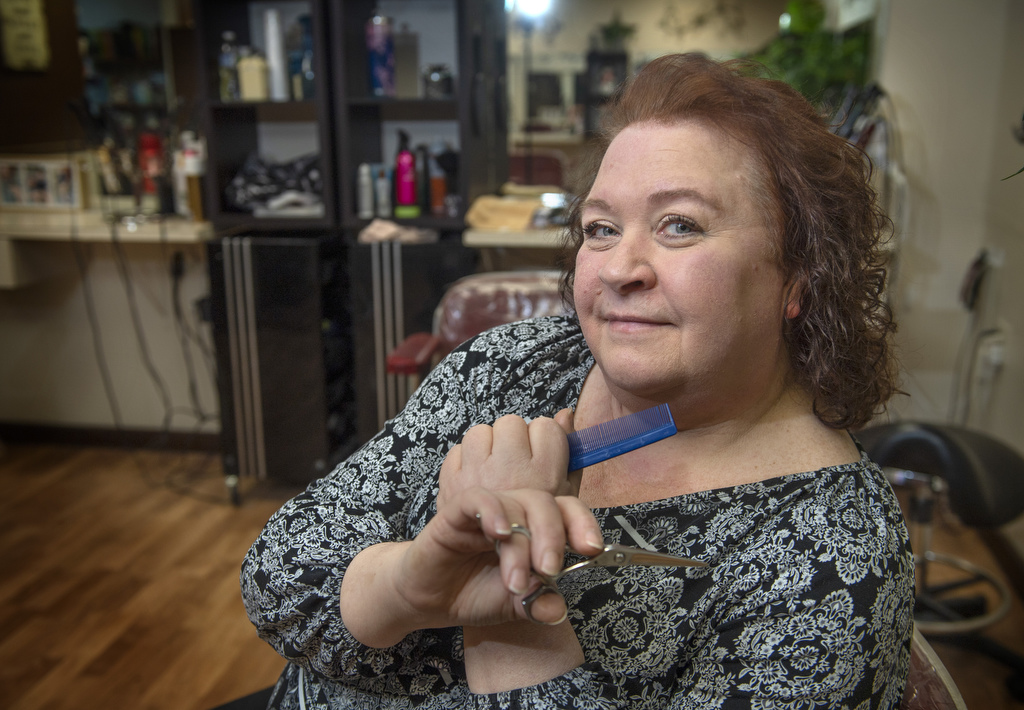
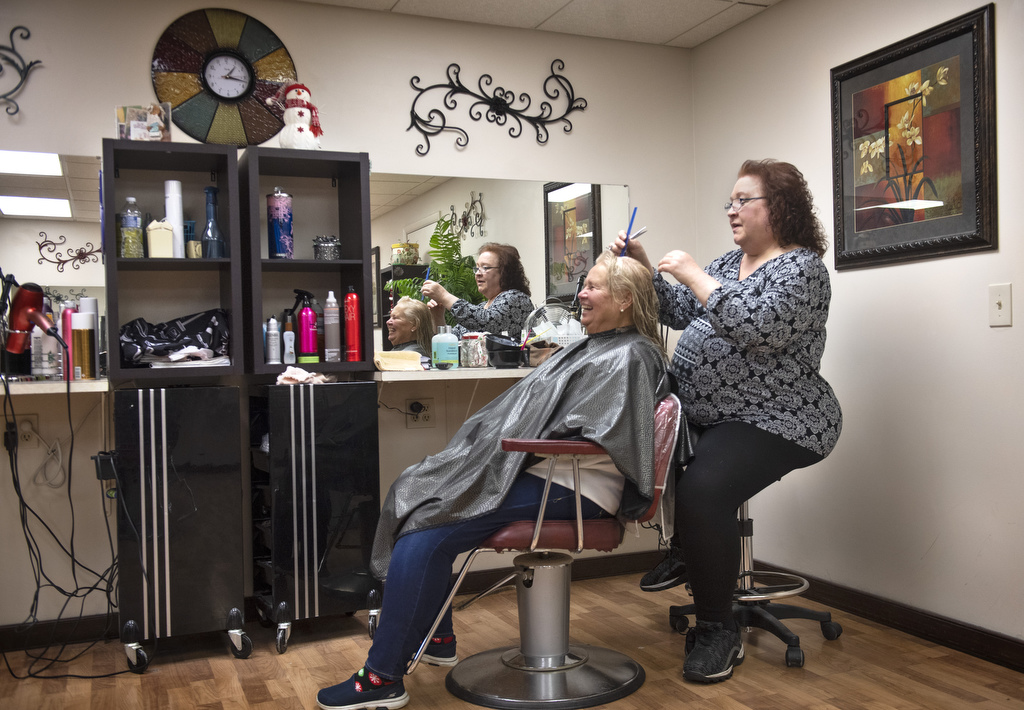
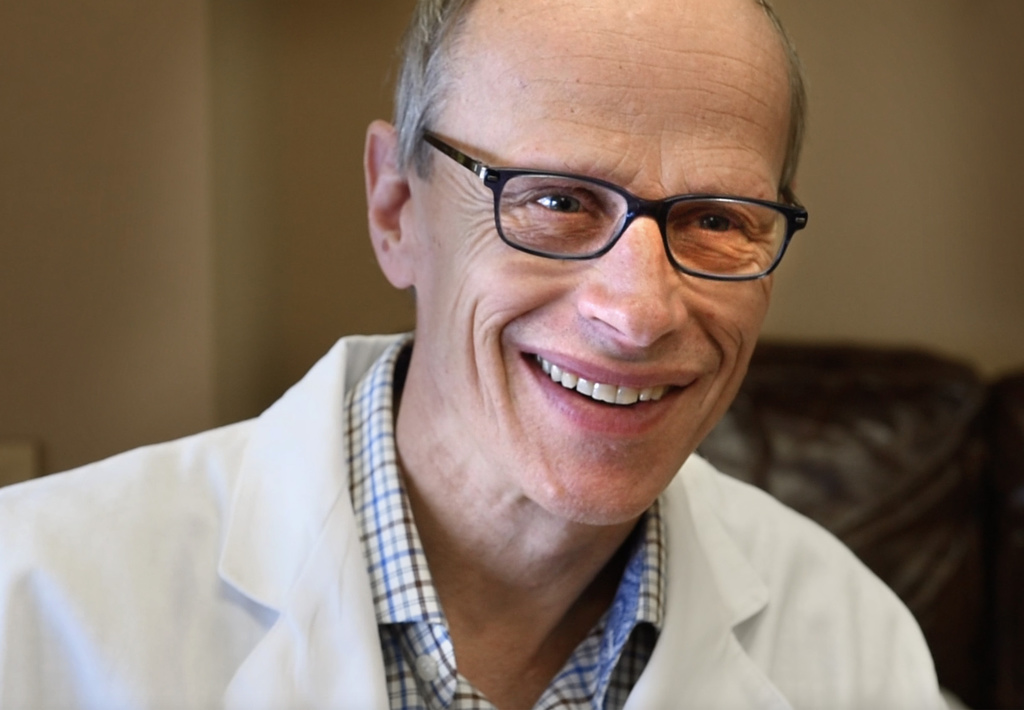
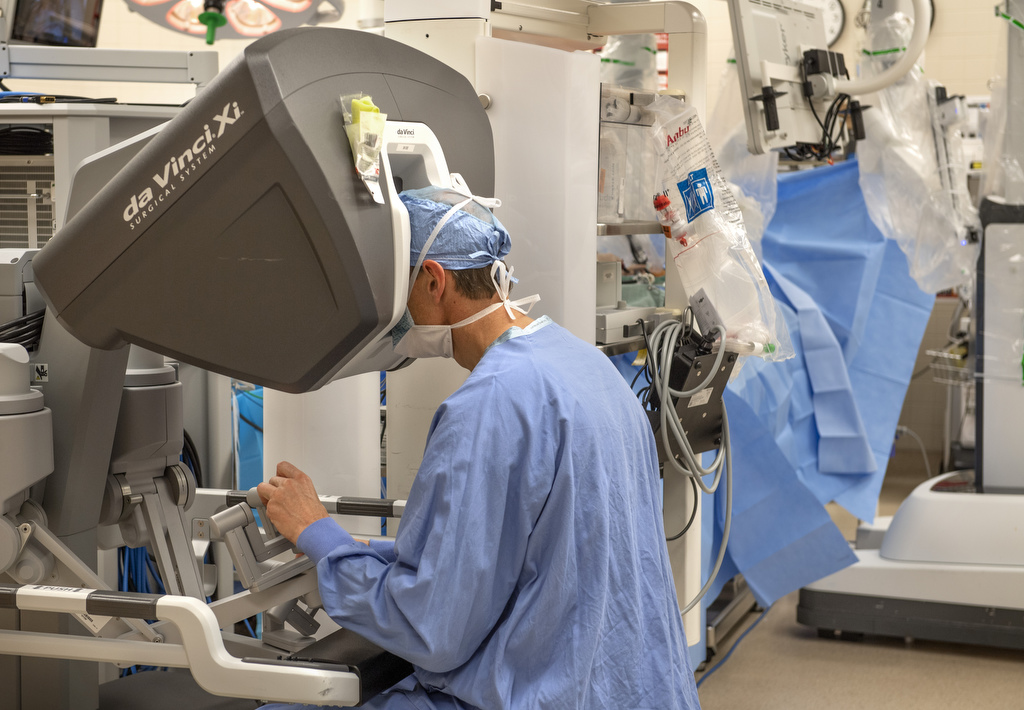
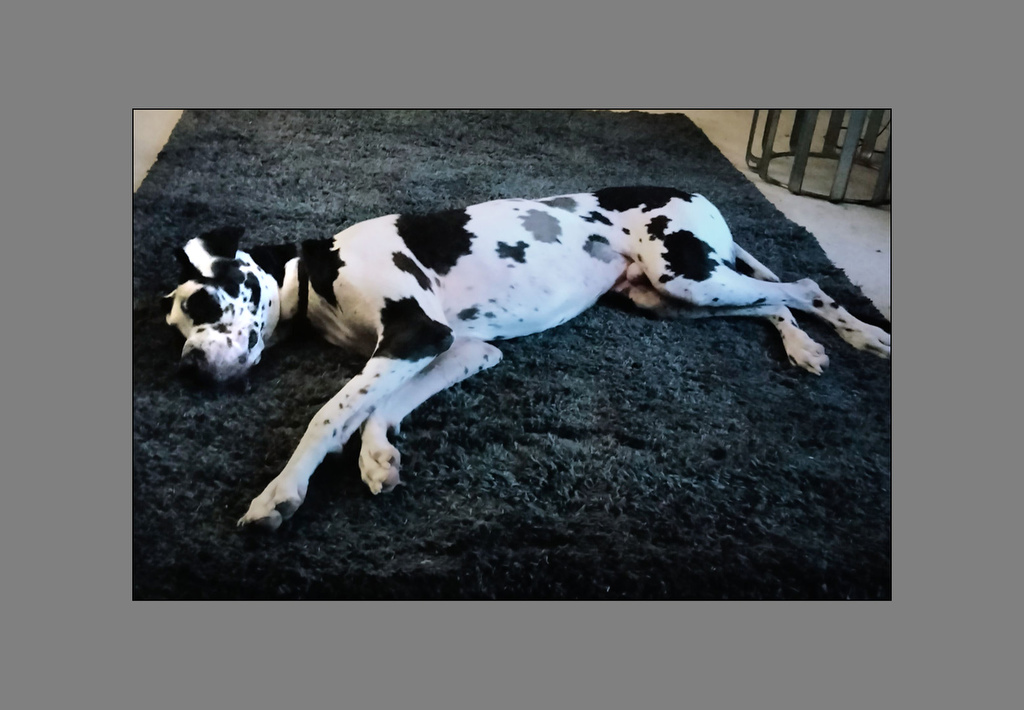
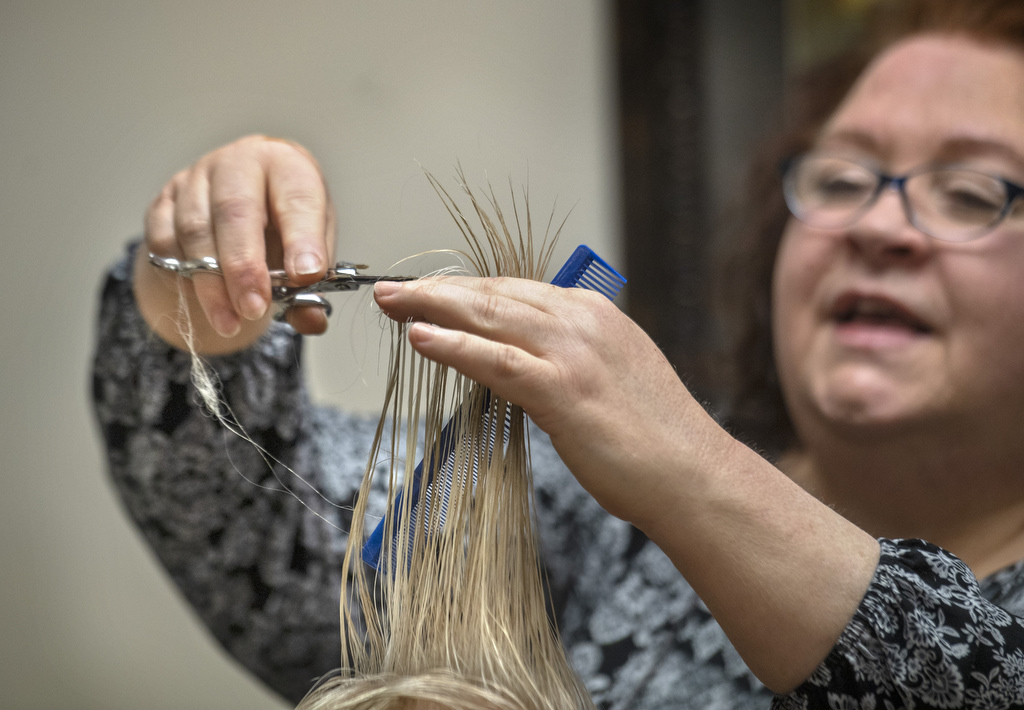
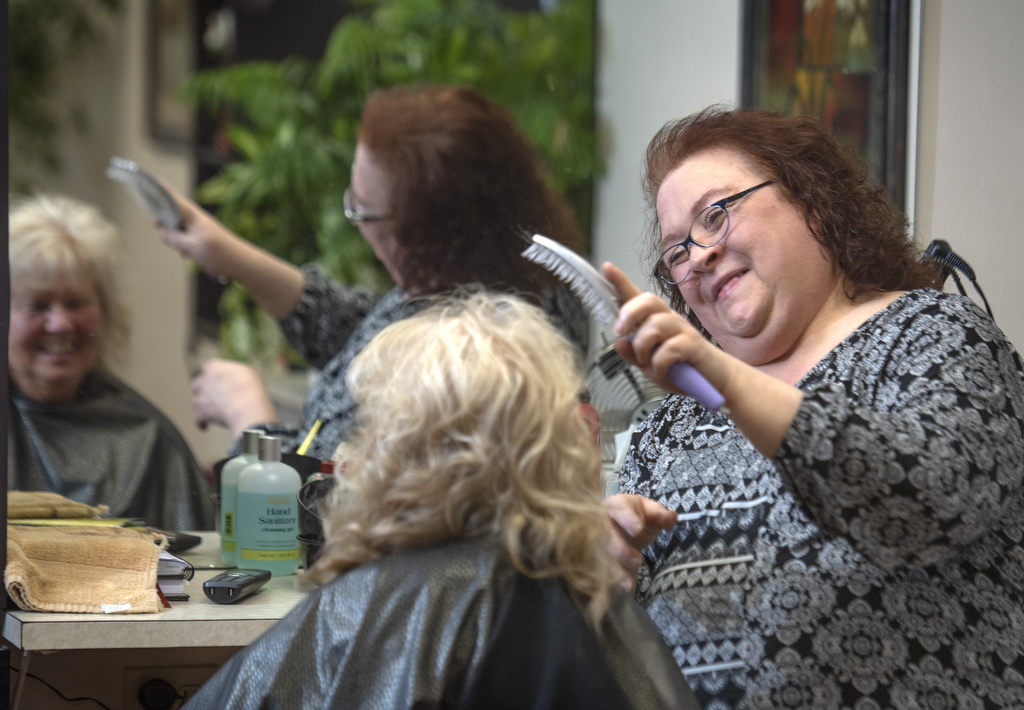
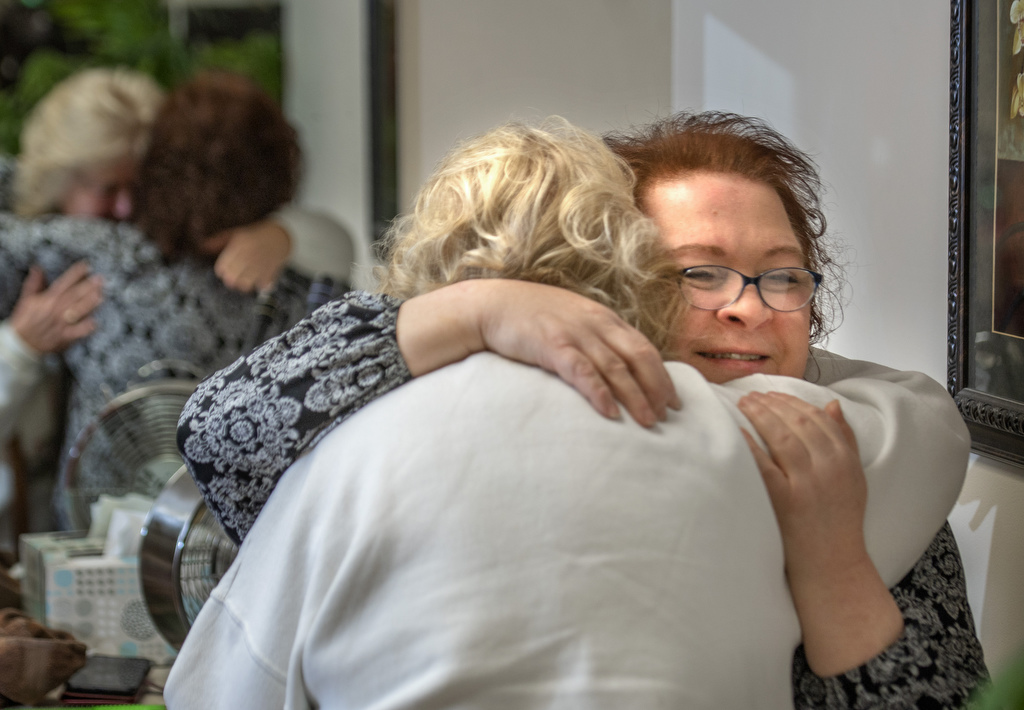



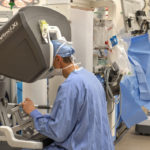




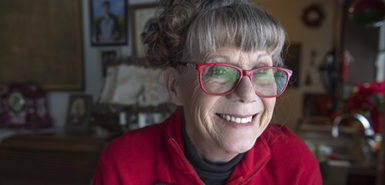 /a>
/a>
 /a>
/a>
 /a>
/a>